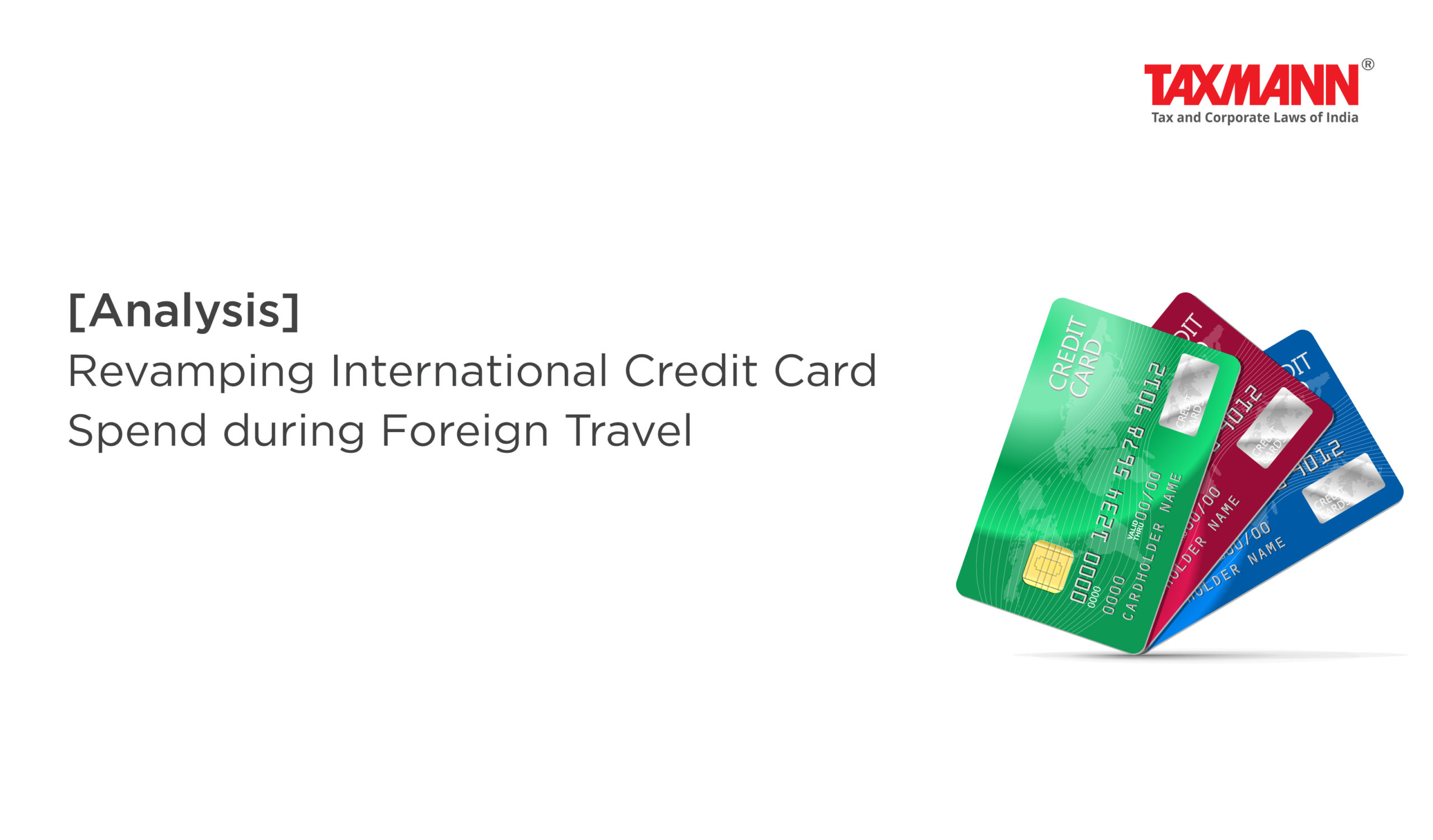[Analysis] Revamping International Credit Card Spend during Foreign Travel
- Blog|News|FEMA & Banking|
- 2 Min Read
- By Taxmann
- |
- Last Updated on 19 May, 2023

Introduction
The Indian government has recently implemented significant changes concerning the usage of international credit cards (ICCs) for individuals travelling abroad. Previously, travellers enjoyed an exemption that allowed unrestricted spending on ICCs to cover their expenses overseas.
However, a recent amendment has brought ICC transactions under the Liberalised Remittance Scheme (LRS) purview introducing new limitations and requirements, which enable the higher levy of TCS, as announced in the Budget for 2022-23, from July 1. This article delves into the implications of this amendment on individuals, tax implications, implications on the credit card industry, and various sectors associated with foreign travel. Foreign Exchange Management Act (FEMA).
1. Shifting Landscape of International Credit Card Usage
Until the recent amendment, Indian travellers benefited from the ease and flexibility of using ICCs without restrictions while travelling abroad. The exemption provided a seamless experience, allowing individuals to utilize their credit cards for various purposes, including accommodation, dining, shopping, and other expenses.
However, the new regulations now bring ICC transactions within the ambit of Rule 5 of the Current Account Rules, 2000, signalling a significant shift in the landscape of international credit card usage.
2. Revisiting Rule 7 and its omission
2.1. Provisions pre-omission
Earlier, Rule 7 of the Foreign Exchange Management (Current Account Transactions) Rules, 2000 provides that:
“Nothing contained in rule 5 shall apply to the use of an International Credit Card for making payment by a person towards meeting expenses while such person is on a visit outside India.”
Whereas Rule 5 read with Schedule III of the Foreign Exchange Management (Current Account Transactions) Rules, 2000 prescribes that Individuals can avail of foreign exchange facility for the specified purposes within the limit of USD 2,50,000 only. Any additional remittance in excess of the said limit for the following purposes shall require prior approval of the Reserve Bank of India.
Click Here To Read The Full Article
Disclaimer: The content/information published on the website is only for general information of the user and shall not be construed as legal advice. While the Taxmann has exercised reasonable efforts to ensure the veracity of information/content published, Taxmann shall be under no liability in any manner whatsoever for incorrect information, if any.

Taxmann Publications has a dedicated in-house Research & Editorial Team. This team consists of a team of Chartered Accountants, Company Secretaries, and Lawyers. This team works under the guidance and supervision of editor-in-chief Mr Rakesh Bhargava.
The Research and Editorial Team is responsible for developing reliable and accurate content for the readers. The team follows the six-sigma approach to achieve the benchmark of zero error in its publications and research platforms. The team ensures that the following publication guidelines are thoroughly followed while developing the content:
- The statutory material is obtained only from the authorized and reliable sources
- All the latest developments in the judicial and legislative fields are covered
- Prepare the analytical write-ups on current, controversial, and important issues to help the readers to understand the concept and its implications
- Every content published by Taxmann is complete, accurate and lucid
- All evidence-based statements are supported with proper reference to Section, Circular No., Notification No. or citations
- The golden rules of grammar, style and consistency are thoroughly followed
- Font and size that’s easy to read and remain consistent across all imprint and digital publications are applied



 CA | CS | CMA
CA | CS | CMA
